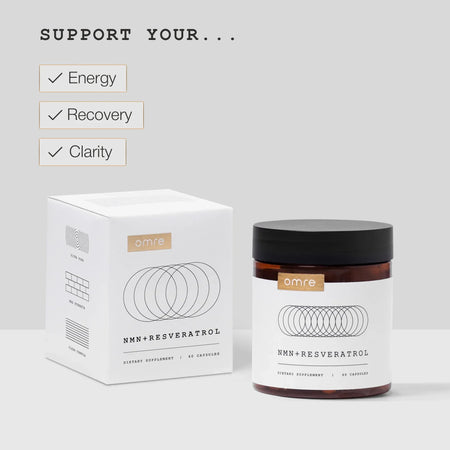In today's health-conscious world, maintaining optimal hormone levels is crucial for overall well-being. Among these hormones, NAD (Nicotinamide Adenine Dinucleotide) plays a pivotal role in energy production, metabolism, and cellular repair. As we age, NAD levels tend to decline, which can lead to various health issues. This article will explore effective strategies to increase NAD levels, ensuring you have the knowledge you need to support your body’s energy and vitality.
How to Increase NAD Levels?
To effectively increase NAD levels in your body, consider the following methods: adopting a balanced diet rich in NAD precursors, engaging in regular physical activity, ensuring adequate sleep, and exploring supplements. Additionally, intermittent fasting and cold exposure may also promote NAD production. Implementing these strategies can help enhance your overall health and vitality.
Understanding NAD and Its Importance
NAD is a coenzyme found in all living cells and is integral to the metabolic process. It facilitates redox reactions, transferring electrons in cellular processes that generate energy. Furthermore, NAD is crucial for DNA repair and cell signaling, playing a significant role in longevity and health.
How Diet Influences NAD Levels
One of the most effective ways to boost your NAD levels is through dietary choices. Foods rich in NAD precursors, such as niacin (Vitamin B3), can significantly contribute to your body’s NAD supply. Consider incorporating the following foods into your diet:
- Meat and Fish: Chicken, turkey, and fatty fish like salmon are excellent sources of niacin.
- Nuts and Seeds: Peanuts, sunflower seeds, and almonds are packed with nutrients that can help raise NAD levels.
- Legumes: Beans and lentils are not only rich in protein but also contain niacin.
- Whole Grains: Oats, brown rice, and whole wheat products can contribute to your niacin intake.
- Vegetables: Certain vegetables, including mushrooms and green peas, also provide niacin and other essential nutrients.
The Role of Exercise in Increasing NAD
Regular physical activity is another key factor in boosting NAD levels. Exercise stimulates the production of NAD by enhancing mitochondrial function, which is vital for energy metabolism. Aim for a balanced routine that includes:
- Aerobic Exercises: Activities like running, cycling, or swimming can increase NAD levels by promoting better oxygen utilization.
- Resistance Training: Lifting weights or performing bodyweight exercises can help improve muscle mass and metabolic function.
- High-Intensity Interval Training (HIIT): This form of training has been shown to boost mitochondrial biogenesis, leading to increased NAD production.
Sleep and Its Impact on NAD Levels
Quality sleep is crucial for overall health and directly influences NAD levels. During sleep, the body undergoes various restorative processes, including the repair of damaged cells and the replenishment of NAD. To improve your sleep quality, consider the following tips:
- Establish a Sleep Schedule: Go to bed and wake up at the same time every day to regulate your body’s internal clock.
- Create a Relaxing Environment: Make your bedroom conducive to sleep by keeping it dark, quiet, and cool.
- Avoid Stimulants: Limit caffeine and electronic device usage before bedtime to improve sleep quality.
Supplements to Increase NAD Levels
If dietary changes and lifestyle adjustments are not sufficient, supplements may provide an additional boost. Some popular NAD-boosting supplements include:
- Nicotinamide Riboside (NR): A form of Vitamin B3 that has been shown to increase NAD levels effectively.
- Nicotinamide Mononucleotide (NMN): Another precursor of NAD that supports cellular energy metabolism and has been studied for its anti-aging properties.
- Niacin: Traditional Vitamin B3, which can also enhance NAD levels, though it may cause flushing in some individuals.
Intermittent Fasting and Cold Exposure
Intermittent fasting has gained popularity for its numerous health benefits, including potential increases in NAD levels. By restricting food intake to specific time windows, you can enhance the body’s metabolic state, promoting NAD production. Similarly, cold exposure, such as cold showers or ice baths, has been linked to increased mitochondrial activity, which may help boost NAD levels.
Conclusion
Increasing your NAD levels is essential for maintaining energy, metabolism, and cellular health as you age. By making informed dietary choices, engaging in regular exercise, ensuring sufficient sleep, and considering supplements, you can effectively enhance your NAD levels. Additionally, incorporating intermittent fasting and cold exposure can further support your body’s natural processes. Embrace these strategies to promote vitality and longevity in your life.
Stay Sharp, Stay Energized, Stay Ahead
Aging doesn’t have to slow you down. NMN + Resveratrol is your key to sustained energy, sharper focus, and long-term vitality. Whether you're a high performer pushing boundaries, a biohacker optimizing every aspect of life, or a parent looking to keep up with the demands of daily life, this powerful combination fuels your body at the cellular level.
Backed by science and trusted by those who refuse to settle for average aging, NMN + Resveratrol helps you stay ahead—today, tomorrow, and for years to come.
Experience the benefits for yourself. Start your journey to better aging now!
Try NMN + Resveratrol Today!
NMN + RESVERATROL
Cellular NAD+ booster with ultra‑pure NMN and Resveratrol, at research‑backed doses.*
Read more:


